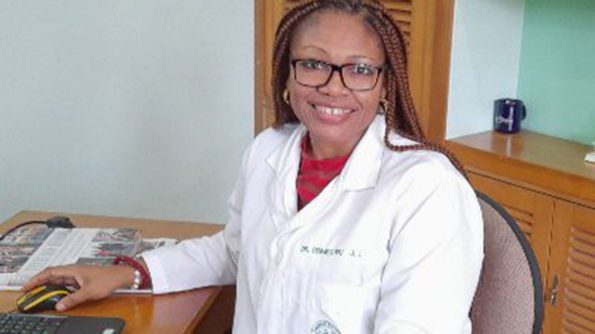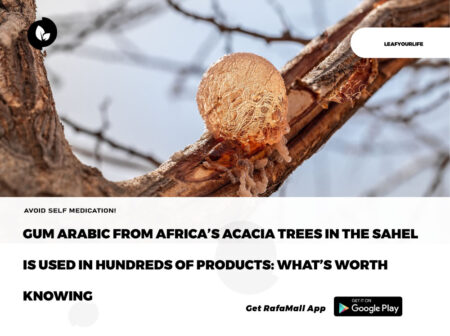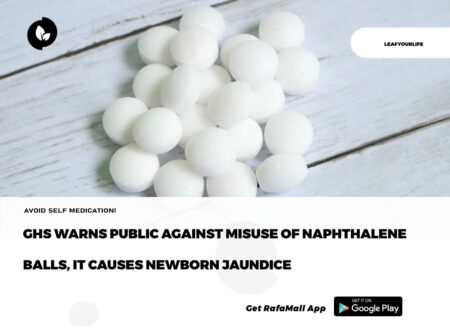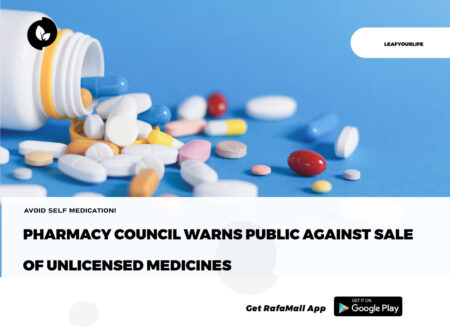
As part of activities to mark African Traditional Medicine Day (ATMD), August 31, and develop the practice of Traditional Medicine (TM) in Nigeria, experts have examined the merits and de-merits of the industry and proffered solutions.
ATMD was approved and instituted on August 31 of each year by the World Health Organisation (WHO) Director General upon the recommendation of the Regional Director for Africa, in 2002.
According to the WHO, Traditional medicine (TM) refers to the knowledge, skills, and practices based on the theories, beliefs, and experiences indigenous to different cultures, used in the maintenance of health and in the diagnosis, improvement or treatment and prevention of physical and mental illness.
African Traditional Medicine (ATM) is also called herbal medicine, folk medicine or ethnomedicine. TM is the oldest type of health care in the world, different societies developed different treatments to combat a wide variety of health and life- threatening diseases. It is therefore a unique medical system, which has been passed down from generation to generation and comes from existing traditions in society.
According to a Book, “African Indigenous Medical Knowledge and Human Health: Traditional Medicine Situation in Africa”, many products based on traditional medical knowledge are important sources of income, food, and health care for many inhabitants of developing countries. “In addition to the contribution of traditional medicine to therapeutic agents, traditional health practitioners in the African region contribute to health-care coverage as they generally far outnumber Western-trained medical doctors,” it noted.
A professor of taxonomy and economic plants from the Faculty of Science, Department of Botany, University of Lagos, Prof. Dele Olowokudejo, said merits of TM include that it is relatively cheaper and more affordable than conventional medicine; easier to access or obtain than prescription medicine; manifests fewer side effects; stabilises hormones and metabolism thereby promoting natural healing; and very low risk of addiction.
He, however, said TM has demerits. These the botanists said include: risk of overdose – TM is not dispensed in form of tablets, pills or capsules, which are rationed and standardised. “Patients are often left to their discretion. Taking the correct dosage is often a challenge and overdosing is usually inevitable.”
Olowokudejo said TM portions are highly susceptible to contamination and adulteration during preparation, dispensation and storage.
He said TM is still largely underdeveloped because of absence of intensive laboratory research, testing and standardisation.
Olowokudejo said risks and uncertainties are involved in acquiring wild species of medicinal plants, which are fast disappearing because of human activities and climate change.
He said surgical procedures, which have become common practice and the only possible healing option in modern medicine is not available in TM.
Olowokudejo said the general public in both rural and urban settings are increasingly expressing concerns about the safety, quality, availability, efficacy, preservation and further development problems of herbal products.
He said open interest has also been expressed regarding the proof on the wellbeing, viability, sustainability and nature of home grown items.
The botanist said intensive researches are needed on: adverse drug reaction; stability testing of herbal potions; drug interaction; and standardisation.
Olowokudejo said there are threats and obstacles to TM practice in Nigeria. He said TM practice relies largely on access to and the efficacy of a wide variety of plant species, which grow in diverse ecosystems and habitats in Nigeria.
Olowokudejo said plants that possess therapeutic properties or exert beneficial pharmacological effects on the human body are generally designated as medicinal plants. He said medicinal plants occur in abundance and have been an important part of the health care system in Nigeria since ancient time. “The heavy reliance on plant medicine is attributed to their efficacy, relative accessibility, low prices, local availability, and general acceptance by local communities; and the inadequacy of health care needs, especially in rural areas,” he said.
Olowokudejo, however, said the continued existence of these plants are threatened by human activities, climate change and global warming, such as: urbanisation and poor solid waste management; industrialisation and pollution; inappropriate agricultural practices; poor forestry operations; wild fires; flooding and erosion; desertification and drought; widespread poverty; invasive species; and global climate and weather patterns.
On measures to combat these challenges, the professor of botany said urgent and bold steps must be taken to promote the conservation and sustainable use of medicinal plants.
Olowokudejo recommended among other things: protection of particular habitats where there is high concentration of medicinal species example National Parks, Biosphere reserves and other protected areas; protection of medicinal plant species from over-exploitation; promotion of ex-situ conservation of medicinal plant species in Botanic Gardens and Gene Banks; intensification of breeding programmes for high-yielding medicinal plant species and hybrids; and production of new varieties of medicinal plants via cell- and tissue-culture techniques and by genetic engineering.

An expert in natural product medicine at the Department of Pharmacognosy, Faculty of Pharmacy, College of Medicine Campus, University of Lagos, Dr. Joy Odimegwu, told The Guardian that the major challenges towards developing traditional medicines is a focus on making it evidence-based and for that to happen, a lot of funds needs to be channeled to research in the area from all sectors, private and public because the outcome is for the common good.
Odimegwu, who is also the author of “Foods Hormones Phytoestrogens Reproductive Health”, said: “By evidence -based research, I mean proper standardization of the already identified effective traditional medicines in order to make way for standardization and characterisation studies which will subsequently perfect dosage forms and quantities.”
On how Nigeria can overcome these challenges, the pharmacognocist said: “The challenges stated above taken in the Nigerian context can be overcome through funding research institutions and Universities also by private and public entities and to involve investors in moving from discovery to commercialisation. The regulators are critical to this process and they must see the researchers at Universities as partners and therefore make it easier for them to list and subsequently gain approval for the traditional medicines. Right now what obtains is that researchers are required to go the route of businesses in registering their discoveries.
This should not be, there should be an arrangement through Directors of research in Universities to fast track discoveries from researchers.”
She said there are a lot of very interesting research results in Universities that are gathering dust on researchers shelves instead of being converted to active use for the battle against diseases and improve health and well being.
As Nigerians, and Africans, we need to be confident of our produce and products and not be swayed by bias of people who are jealous of our natural biodiversity and how we use them to improve our health. Case in point, many researchers abroad appear puzzled that we were not decimated by COVID-19 as they prophesied and now call it the ‘African mystery’. There is no mystery there, we used our herbal medicines and spices to treat ourselves and so, did not die as they had forecasted,” Odimegwu said.
On what have been the challenges towards the development of TM, Professors of microbiology and immunology at the Department of Medical Microbiology and Immunology, Nile University of Nigeria, Abuja, Boaz Adegboro, and Jibril Imran, said many traditional medicine practitioners use both incantations and medicines for treating patients. “This practice makes traditional medicine look mysterious and so unacceptable to a large proportion of our population,” they said.
They said many drugs are prepared with hot alcoholic drinks and damage the kidneys and the liver, especially amongst children.
They blamed inadequate knowledge of the mode of action, mode of excretion and dosages of the drugs and unhygienic environments of the practices.
Other challenges, they said include: lack of approval by health regulatory bodies; inadequate training of the practitioners; and lack of publications about the drugs in peer-reviewed journals
On how Nigeria overcome these challenges, Adegboro, and Imran recommended demystifying the use of native medicines and the use of incantations must be separated from the use of medicines.
They urged extraction of active components of the leaves, fruits, seeds, backs or roots. They said pharmacodynamics and pharmacokinetics studies must be conducted on the extracts; and dosing of the medicines must be attained.
They said toxicology tests of the drugs on laboratory animals are very important. “Just last week the National Agency for Food and Drug Administration and Control (NAFDAC) withdrew approval for five previously approved alcoholic bitters because they cause kidney damage,” the microbiologists said.
Adegboro and Imran said clinical trials for efficacy and safety of the drugs need to be conducted and publications of the research outcomes must go to peer-reviewed scientific journals.
They also recommended inclusion of ATM in national health policies and national health strategic plans; healthy collaboration between ATM and orthodox medicine practitioners; increase funding for research; establishment of regulatory body for ATM and its practitioners, code of ethics for ATM practitioners, setting up national research institutes dedicated to ATM, registration and local production of traditional medicine products; cultivation and growth of medicinal plants; institutionalised training and re-training programmes for practitioners of ATM; and national plan for integrating ATM into the country’s Primary Health Care System.
The microbiologists said Traditional Birth Attendants (TBAs) have been incorporated into the Lagos State health care system through collaboration with the orthodox medicine, training and re-training of TBAs to let them know when to refer a woman in labour to the near-by hospital. This, they said, is yielding positive results and should be emulated by other States of the federation. They said this form of collaboration should also be extended to other units of medical care. For instance, they said, the Traditional Bone Setters (TBSs) should be seen by the orthopaedic surgeons as partners in progress and not nonentities.
A study on African Traditional and Complementary Therapies published in the journal Complementary Therapy concluded: “The pattern of disease is changing in developing countries of Africa as a result of globalisation, mostly due to contributing factors such as lifestyle, diet, obesity, lack of exercise, stress, etc. A steady rise in the prevalence of chronic non-communicable diseases is significantly contributing to Africa’s disease burden and is adding to healthcare systems already strained due to the high incidence of infectious diseases. It is, therefore, postulated that Traditional, Complementary, and Alternative Medicine (TCAM) will continue to play an integral role in the health and well being of people suffering from chronic diseases in Africa as it is part and parcel of African heritage….”
Source: guardian.ng











